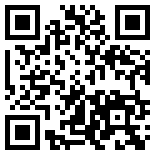在雅思閱讀考試中我們可以借助一些信號(hào)詞來幫助我們理解文章內(nèi)容,快速進(jìn)行答題,。那么雅思閱讀中常見的信號(hào)詞有哪些呢?今天為大家分享雅思閱讀中常見的三種信號(hào)詞,,大家可以學(xué)習(xí)一下,在備考中也注意積累信號(hào)詞,。
常見信號(hào)詞1
表達(dá)主觀觀點(diǎn)statements,, opinions
例詞: say,, believe, argue that,, maintain that,, claim…
考點(diǎn):The UCSF researchers maintain that the simplest and most cost-effectiveaction is to establish smoke-free work places, schools and public places. (C3,,P20,, T27分類題)
解析:這道分類題考察區(qū)分a finding和an opinion.表達(dá)個(gè)人觀點(diǎn)(anopinion)帶有一定的主觀性,所用的信號(hào)詞顯然與客觀事實(shí)發(fā)現(xiàn)(afinding)的有所區(qū)別,。除了上面列舉的例詞之外,,很多表達(dá)主觀想法的雅思閱讀考試詞匯都可以做這樣的判斷。
常見信號(hào)詞2,、表達(dá)客觀結(jié)論findings
例詞: indicate that,, suggest that, find out,, conclude that,, point out, reportthat,, demonstrate that…
考點(diǎn):But Byers points out that the benefits of increased exercise disappearrapidly after training stops,, so any improvement in endurance resulting fromjuvenile play would be lost by adulthood.(C4, P50,, T38配對(duì)題)
解析:配對(duì)題目是典型的人名和成果的配對(duì),,我們到文章中定位人名就比較好找到答案,,可是人名出現(xiàn)的地方就一定是考點(diǎn)么?不見得,。但是一旦表達(dá)客觀結(jié)論的信號(hào)詞與人名同時(shí)出現(xiàn)時(shí),就是考點(diǎn)出沒的地方了,。這類觀點(diǎn)信號(hào)詞在雅思閱讀考試中還是比較容易找到,,也就比較容易定位的。
常見信號(hào)詞3,、特殊符號(hào)
例詞: ‘word’,, ——, word…
考點(diǎn):In very significant cases of role change,, e.g. from a soldier in theranks to officer,, from bachelor to married man, the change of role has to have avery obvious sign,, hence rituals.(C3,, P48, T37完成句子)
解析:文中斜體的部分其實(shí)就是考察的考點(diǎn),,不知道這個(gè)詞語(yǔ)的意思沒有關(guān)系,,只要能判斷,,需要填寫的單詞是斜體部分,照抄過來就可以輕松拿分,。
以上是為大家介紹的雅思閱讀中常見的三種信號(hào)詞,,大家可以結(jié)合有效的練習(xí)多積累多總結(jié),在考試實(shí)戰(zhàn)中能快速準(zhǔn)確的進(jìn)行答題,。
愛品網(wǎng) IPNO.CN
b2b免費(fèi)推廣平臺(tái)
掃掃有驚喜



